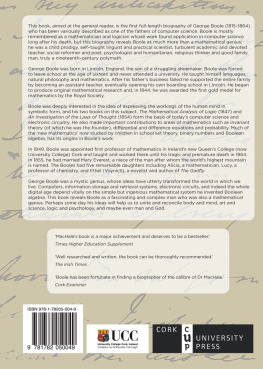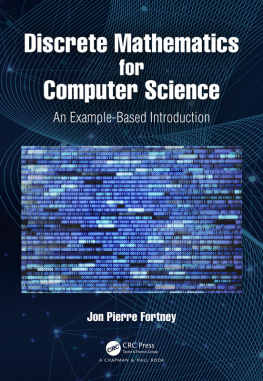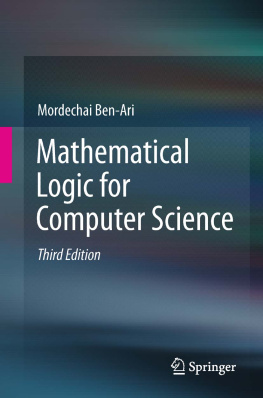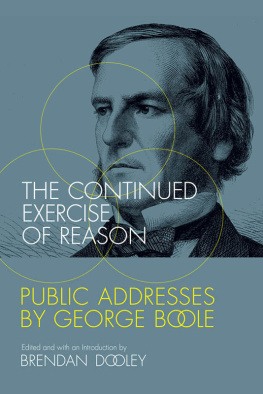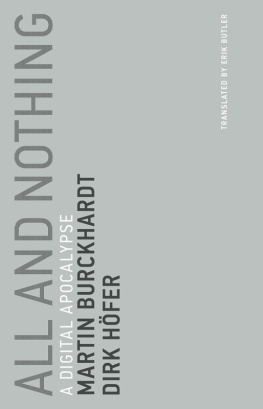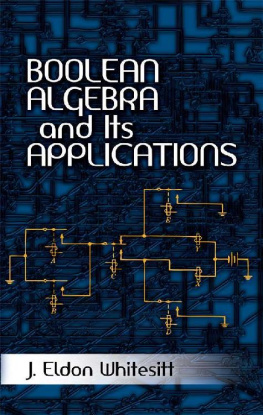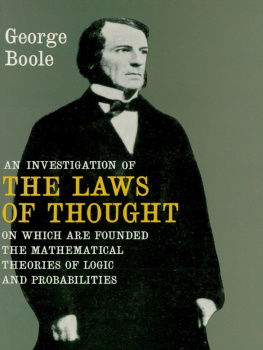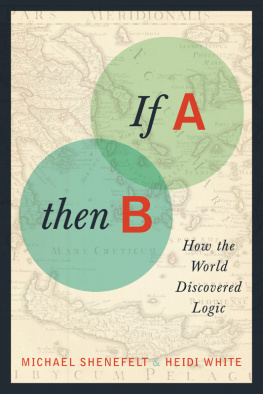Desmond MacHale - The Life and Work of George Boole: A Prelude to the Digital Age
Here you can read online Desmond MacHale - The Life and Work of George Boole: A Prelude to the Digital Age full text of the book (entire story) in english for free. Download pdf and epub, get meaning, cover and reviews about this ebook. year: 2014, publisher: Cork University Press, genre: Detective and thriller. Description of the work, (preface) as well as reviews are available. Best literature library LitArk.com created for fans of good reading and offers a wide selection of genres:
Romance novel
Science fiction
Adventure
Detective
Science
History
Home and family
Prose
Art
Politics
Computer
Non-fiction
Religion
Business
Children
Humor
Choose a favorite category and find really read worthwhile books. Enjoy immersion in the world of imagination, feel the emotions of the characters or learn something new for yourself, make an fascinating discovery.
- Book:The Life and Work of George Boole: A Prelude to the Digital Age
- Author:
- Publisher:Cork University Press
- Genre:
- Year:2014
- Rating:3 / 5
- Favourites:Add to favourites
- Your mark:
The Life and Work of George Boole: A Prelude to the Digital Age: summary, description and annotation
We offer to read an annotation, description, summary or preface (depends on what the author of the book "The Life and Work of George Boole: A Prelude to the Digital Age" wrote himself). If you haven't found the necessary information about the book — write in the comments, we will try to find it.
* 2015 is the 200th anniversary of Booles birth
This book is the first full-length biography of George Boole (18151864), who has been variously described as the founder of pure mathematics, father of computer science and discoverer of symbolic logic. Boole is mostly remembered as a mathematician and logician whose work found application in computer science long after his death, but this biography reveals Boole as much more than a mathematical genius; he was a child prodigy, self-taught linguist and practical scientist, turbulent academic and devoted teacher, social reformer and poet, psychologist and humanitarian, religious thinker and good family man truly a nineteenth-century polymath.
George Boole was born in Lincoln, England, the son of a struggling shoemaker. Boole was forced to leave school at the age of sixteen and never attended a university. He taught himself languages, natural philosophy and mathematics. After his fathers business failed he supported the entire family by becoming an assistant teacher, eventually opening his own boarding school in Lincoln. He began to produce original mathematical research and, in 1844, he was awarded the first gold medal for mathematics by the Royal Society.
Boole was deeply interested in the idea of expressing the workings of the human mind in symbolic form, and his two books on this subject, The Mathematical Analysis of Logic (1847) and An Investigation of the Laws of Thought (1854) form the basis of todays computer science and electronic circuitry. He also made important contributions to areas of mathematics such as invariant theory (of which he was the founder), differential and difference equations and probability. Much of the new mathematics now studied by children in school set theory, binary numbers and Boolean algebra, has its origins in Booles work.
In 1849, Boole was appointed first professor of mathematics in Irelands new Queens College (now University College) Cork and taught and worked there until his tragic and premature death in 1864. In 1855, he had married Mary Everest, a niece of the man after whom the worlds highest mountain is named. The Booles had five remarkable daughters including Alicia, a mathematician, Lucy, a professor of chemistry, and Ethel (Voynich), a novelist and author of The Gadfly.
Desmond MacHale: author's other books
Who wrote The Life and Work of George Boole: A Prelude to the Digital Age? Find out the surname, the name of the author of the book and a list of all author's works by series.

